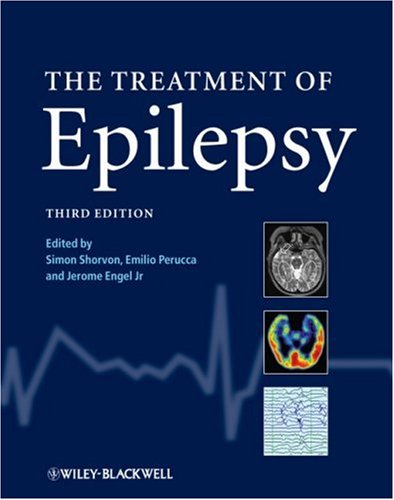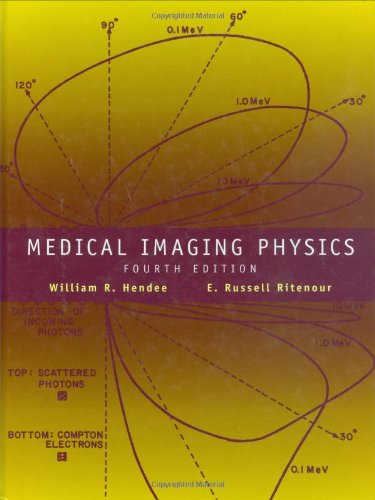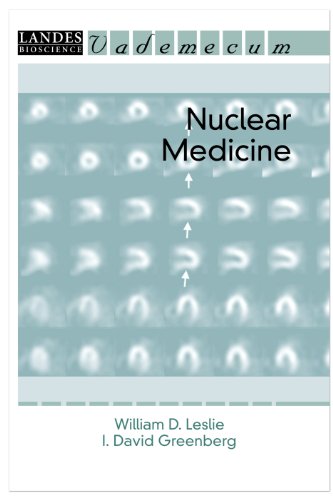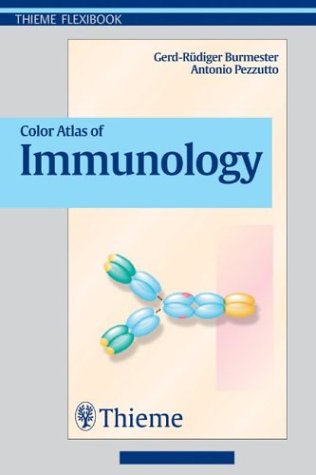Simon D. Shorvon, Emilio Perucca, Jerome Engel Jr.9781405183833, 1405183837
The third edition of The Treatment of Epilepsy has been thoroughly updated. It is a reference work, but has a strong practical bias, and is designed to assist neurologists, neurosurgeons and other clinicians at all levels who are involved in the treatment of patients with epilepsy. It is a definitive source of clinical information to guide clinical practice and rational therapy.
Written and edited by leading experts, many actively involved with the International League Against Epilepsy, this new edition: covers the recent advances in the principles and approaches to epilepsy therapy, the introduction of new drugs and the development of new surgical techniques contains 26 completely new chapters and 61 new contributors includes pharmacological properties and prescribing information for all drugs used in the treatment of epilepsy features the important contribution of a new editor Jerome Engel Jr, Professor of Neurology at the University of California School of Medicine in Los Angeles.
Table of contents :
Cover……Page 1
Contents……Page 5
Contributors……Page 8
Foreword……Page 14
Preface to the Third Edition……Page 15
History of the Drug Treatment of Epilepsy Between 1955 and 1989 with Special Reference to the Role of the International League Against Epilepsy……Page 19
Colour plates……Page 37
Section 1: Introduction……Page 53
1. Defi nitions and Classifi cation of Epilepsy……Page 54
2. Epidemiology and Prognosis of Epilepsy……Page 72
3. Aetiology of Epilepsy……Page 83
4. Differential Diagnosis of Epilepsy……Page 104
5. Mechanisms of Epileptogenesis……Page 116
6. Antiepileptic Drug Discovery……Page 129
7. Mechanisms of Antiepileptic Drug Action……Page 138
8. Mechanisms of Tolerance and Drug Resistance……Page 156
Section 2: Principles of Medical Management……Page 166
9. General Principles of Medical Management……Page 167
10. Management of Newly Diagnosed Epilepsy……Page 186
11. Management of Chronic Active Epilepsy in Adults……Page 197
12. Management of Epilepsy in Remission……Page 207
13. Management of Epilepsy in Infants……Page 214
14. Management of Childhood Epilepsy Syndromes……Page 222
15. Management of Epilepsies Associated with Specific Diseases in Children……Page 238
16. Management of Epilepsy in the Elderly……Page 245
17. Management of Epilepsy in People with Learning Disabilities……Page 260
18. Emergency Treatment of Seizures and Status Epilepticus……Page 271
19. Traumatic Brain Injury and Other Risks……Page 288
20. Management of Medical Co-morbidity Associated with Epilepsy……Page 297
21. Psychiatric Features of Epilepsy and their Management……Page 311
22. Management of Side-effects of Antiepileptic Drugs……Page 326
23. Ketogenic Diets……Page 337
24. Non-pharmacological,Complementary and Alternative Treatments for Epilepsy……Page 347
25. Reproductive Aspects of Epilepsy Treatment……Page 359
26. Epilepsy Counselling……Page 370
27. Genetic Counselling in Epilepsy……Page 376
28. Drug Interactions……Page 396
29. Medical Treatment of Epilepsy in Situations with Limited Resources……Page 413
Section 3: Antiepileptic Drugs……Page 420
30. Introduction to the Choice of Antiepileptic Drugs……Page 421
31. Acetazolamide……Page 431
32. Adrenocorticotropic Hormone and Corticosteroids……Page 443
33. Benzodiazepines used Primarilyfor Chronic Treatment(Clobazam, Clonazepam,Clorazepate and Nitrazepam)……Page 452
34. Benzodiazepines used Primarily for Emergency Treatment (Diazepam,Lorazepam and Midazolam)……Page 462
35. Brivaracetam……Page 478
36. Carbamazepine……Page 489
37. Carisbamate……Page 505
38. Eslicarbazepine Acetate……Page 515
39. Ethosuximide……Page 529
40. Felbamate……Page 540
41. Gabapentin……Page 548
42. Lacosamide……Page 556
43. Lamotrigine……Page 564
44. Levetiracetam……Page 588
45. Oxcarbazepine……Page 603
46. Phenobarbital, Primidone and Other Barbiturates……Page 613
47. Phenytoin……Page 632
48. Piracetam……Page 646
49. Pregabalin……Page 653
50. Retigabine……Page 662
51. Rufi namide……Page 672
52. Stiripentol……Page 681
53. Tiagabine……Page 686
54. Topiramate……Page 696
55. Valproate……Page 707
56. Vigabatrin……Page 720
57. Zonisamide……Page 734
58. Other Drugs Rarely Used……Page 742
59. Antiepileptic Drugs in Early Clinical Development……Page 753
Section 4: Presurgical Assessment and Epilepsy Surgery……Page 761
60. Overview of Surgical Treatment for Epilepsy……Page 762
61. Scalp EEG in the Epilepsy Surgery Evaluation……Page 776
63. MEG in Presurgical Evaluation of Epilepsy……Page 786
64. MRI in the Presurgical Evaluation……Page 792
65. PET and SPECT in Presurgical Evaluation of Epilepsy……Page 808
66. Experimental Neurophysiological Techniques……Page 816
67. Neuropsychological Testing in Presurgical Evaluation……Page 837
68. Presurgical Psychiatric Evaluation……Page 850
69. Mesial Temporal Lobe Surgery and Other Lobar Resections……Page 860
70. Resective Surgery of Neoplasms……Page 871
71. Resective Surgery of Vascular and Infective Lesions for Epilepsy……Page 886
72. Surgery of Developmental Anomalies Causing Epilepsy……Page 908
73. Hemispherectomy for Epilepsy……Page 917
74. Corpus Callosotomy……Page 925
75. Hypothalamic Hamartoma and Multiple Subpial Transection……Page 933
76. Awake Surgery for Epilepsy……Page 940
77. Epilepsy Surgery in Children……Page 948
78. Stereotactic Surgery for Epilepsy……Page 956
79. Complications of Epilepsy Surgery……Page 974
80. Anaesthesia for Epilepsy Surgery……Page 987
81. Vagal Nerve Stimulation……Page 997
82. Brain Stimulation……Page 1004
83. Stereotactic Radiosurgery for Medically Intractable Epilepsy……Page 1013
84. Future Focal Treatment Approaches to Epilepsy……Page 1020
85. Epilepsy Surgery in Countries with Limited Resources……Page 1028
Index……Page 1034







Reviews
There are no reviews yet.